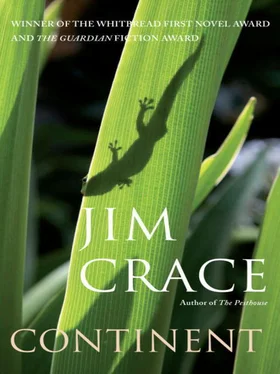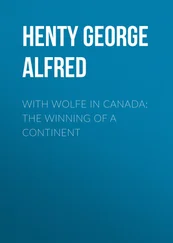‘Well, his father and friends had a good laugh. “The city has gone to your head,” they told him. “Did you get knocked down by a lorry? Or is the city drink too strong for you?” But the young man was insistent. What did they know about the big, wide world? He’d show them up for what they were! Ignorant bumpkins. He’d bring the skull to the village. Then they would eat their words. “Bring it, then,” an uncle told him. “But don’t forget the way you have insulted us. Don’t come back without your talking skull or you will bring shame on yourself and your family.”
‘So he returned to the city. He went to the spot where he had found the skull and, yes, it was still there, exactly as he had left it. “What brought you here?” he asked. Silence. Silence. “What brought you here? What brought you here?” Still the skull was silent.
‘Our clever young friend returned each day and tried to strike up conversation. No luck. What could he do? How could he return home without his talking skull? How could he remain in the city without the support of his family? All he could do was persist with the skull. He went without food and work and shelter. Nobody helped him. Why should they? He was a stranger, a crazy stranger who talked to bones. “What brought you here? What brought you here?” He got hungrier. Dirtier. Thinner. Weaker. More desperate. And then, of course, he died, dropping to the ground next to the old human skull. Now, at last, it opened its yellow jaws and asked, “What brought you here?” What do you suppose the young man’s corpse replied?’
‘Chatter,’ says my father.
‘“Talking brought me here”,’ I recite dutifully.
My father’s friend has embarrassed me to hide his own embarrassment. His is more than just a social visit. He has come on business. His passions are in tumult. On the one hand, he is a man shamed by a wife so sick of pregnancy that she refuses to share his bed. On the other, he is a vaunting lover with designs on a local widow. How to succeed with this woman, half his age? ‘Let me take something with me, old friend,’ he says, ‘to win her heart.’ My father makes a great show of thought and then he advises a cunning double application of freemartin milk. What else?
‘Passion between men and women is a complicated matter,’ he explains. ‘Who can unravel such a tangle? My milk can help — but who can say why or how? You’ll make your head ache looking for answers. Just trust in the experience of a thousand others. Take one jar for your widow. Add it secretly to her fresh milk. She will begin to think of love. But her love will be indiscriminate. My milk cannot work miracles. I cannot make her prefer you to all others. But if you are constantly there, well then, when she grows tender you will have the advantage. The second jar is for your wife. Maybe she will reconsider.’
My father’s friend takes banknotes from his saddlebag and puts them under the almost empty bottle. ‘Make sure you give me only the freshest and richest milk,’ he says.
It is almost midnight and these two old friends drag an unwilling freemartin out of her sleep and into the light of the stables. She is ugly and malformed and resentful. My father stoops and tugs at her shrunken udders. He works hard in his own shadow, his back blocking his friend’s view. Eventually he turns to show a bowl half full of some opaque liquid, a little urine, perhaps, mixed with thick bovine secretions. The cow’s udders are rough and sore. My father applies a poultice of mullein and then stands to display what he has managed to coax from the cow’s vestigial teats. ‘Milk,’ he says. ‘Good and fresh!’
‘Freemartins don’t produce milk,’ I say. ‘They can’t and they don’t.’
Both men chuckle. ‘Talking skull,’ says my father.
TODAY a helicopter has been circling the village. It lifts a dust devil of dry earth and grass in its path. Foxes, owls and night voles which should be sleeping in holes and hollows flee from the helicopter’s storm of agitated air. The pilot is searching for a level landing spot. The machine settles at last on the edge of the village. Its engine is cut and all that can be heard for a moment is the complaint of a calf separated from the herd. All the villagers have hurried to touch the machine. It is the first aircraft to have landed here.
A woman climbs from the helicopter. She has an old tanned face and young blonde hair. Who speaks German or English or French, she wants to know.
‘English,’ I say. ‘Some French. I am at your service, of course. Je ne demande pas mieux. Cela va sans dire.’
‘Excellent. Tell me, do you know the man who has the herd of freemartin cows?’
‘He is my father.’
Now she is delighted. She holds out a broad hand. ‘My name is Anna,’ she says. ‘And yours?’
‘Lowdo.’ (‘Lowdo, Lowdo,’ repeat my neighbours, recognizing a word.) She is a Swedish film-maker, she says. She is making a documentary. Would it be possible to film in the village, to talk to my father, to see the freemartin herd? I turn and ask my neighbours. Yes, yes, they say. Let her film in the village. Our house is her house. Now she introduces the pilot, her cameraman and her sound recordist. They grin and wave as I translate their names and their occupations.
‘Who’d like a ride in the helicopter?’ the pilot asks. ‘You could see your village from above.’ Nobody volunteers.
I lead Anna and her crew along the track to our compound. She is animated and delighted with everything she sees. She makes notes. She asks the names of flowers and small children. I explain the significance of the cattle necklaces and help her with the pronunciation of some common words. She is, she says, interested in living folklore. She has filmed in thirty countries but still she hasn’t lost her sense of wonder. ‘As soon as I heard just half a whisper of this freemartin business,’ she says, ‘I just dropped everything and flew right out. It’s all so magical, so naive.’ But, no, she isn’t criticizing. Naivety she admires. It is a quality missing in Sweden. Have I ever visited Stockholm? No? Then it must be arranged. She will talk about it to a man she knows at the embassy. But first she asks for all my help with her film. Will I do that for her? Will I persuade my father to agree to the filming?
My father is unimpressed (or so he claims) by the fuss and commotion. It is all inconvenient. Already, he complains, customers have been scared away. He has lost money; he has lost time; his milk does not last for ever; the clatter of the helicopter has upset his herd.
‘Tell him that this film is very important to us,’ instructs Anna.
‘Ask her how important,’ says my father.
Anna offers fifty American dollars but they are worthless away from the city and the banks. My father points at the bags and boxes of the film crew. Each one is opened. He inspects cameras and lenses and film cans. Clothes and camping gear are unpacked and displayed. He touches a hurricane lamp, a camping stove, a torch, an inflatable mattress and the aluminium tent-poles. These are his fee. Anna nods: ‘Tell your father that these are our gifts to him when we leave. These are his only when all the film is in the can.’
I work hard for Anna and her film. My father is not easily managed. He does not understand the requirements of the cameraman. He does not have the patience for the repetitions of filming. But he has set his heart on the tent-poles and is grumpily cooperative. He is filmed selling milk to a shy bridegroom. He is filmed feeding the herd. I translate Anna’s questions to him and paraphrase his rough answers for the film’s subtitles. I arrange for the film crew to visit a woman who says she was barren before she took my father’s milk. Now she is pregnant and has a two-year-old son. I coax the cattle to remain still while the camera examines their organs and udders.
Читать дальше












